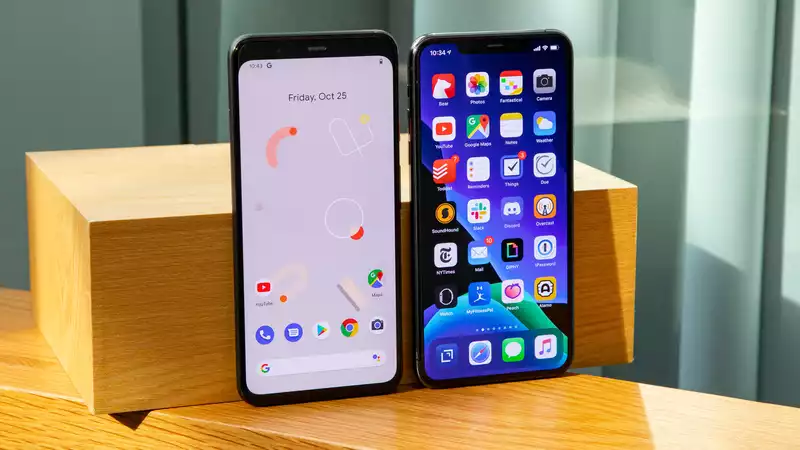Apple and Google have officially partnered to provide a contact tracking solution to slow the spread of the coronavirus using bluetooth technology in smartphones
The goal, announced in a joint blog post last week, is to alert people if they come in contact with someone who has tested positive for COVID-19
If these individuals' smartphones are within a few feet of each other, the proposed system could record the interaction and notify the user if they come in contact with another user who later tests positive for coronavirus
Both Apple and Google plan to include this tracking system in their iOS and Android operating systems, raising many questions and concerns surrounding this concept
Some legislators, such as Senators Kamala Harris and Bob Menards, have raised many questions and concerns about this initiative Kamala Harris and Bob Menendez fear the rise of a location-based surveillance state Medical professionals are skeptical that people will submit false test results, undermining the purpose of the system
In a proactive effort to demonstrate transparency, yesterday (April 13) Apple and Google had journalists call and ask questions about how the contact tracing strategy will work, when the system will be implemented, and whether current privacy concerns are justified They had them
Here is what you need to know about Apple and Google's use of contact tracing to control the spread of the coronavirus
Apple and Google's contact tracing system works using Bluetooth, not GPS, as early rumors about this effort suggested According to Bloomberg, the tech giants said the system can record when different smartphone users are within a few feet of each other for up to 10 minutes [This is a greater social distance than the CDC's recommended six feet, but it is useful in crowded places like supermarkets
Apple and Google intend to incorporate contact tracing technology into their mobile operating systems (iOS and Android) and tie that functionality into apps for public health authorities These apps will be used to verify the submission of positive test results and deploy alerts directly through licensed health agencies
In other words, users would not need to download additional apps for contact tracing to work, but the primary functionality would require users to download specific public health apps
According to The Verge, Apple and Google's contact tracing systems are "cleverly designed to maximize personal privacy"
Location data is not stored and personal medical records are not shared The proximity of one smartphone to another is the only information Apple and Google use for contact tracing
Still, people are concerned that this cooperation between major tech companies could lead to irreversible privacy violations down the road But as The Verge points out, we are in the midst of a pandemic, and it is reasonable to believe that Apple and Google will protect our personal health information
That's right If you don't want your smartphone to be used for contact tracing, you can opt out; when updates arrive for your iPhone or Android operating system, just don't install them
That said, operating system updates usually include security patches and other useful upgrades We do not recommend waiting to upgrade, but you have the right to refrain if you are concerned about tracking your contacts
You could probably disable contact tracing by leaving Bluetooth turned off However, it is possible that Apple or Google may be using a feature that is not accessible to the user
According to Bloomberg, contact tracing for iOS and Android will begin rolling out in mid-May The two companies are first working on letting iPhones and Android phones "wirelessly exchange anonymous information" using approved public health apps
Apple and Google will then push the contact tracing system directly into their operating systems in the coming months It's easier to encourage people to update their operating system than to make them download another app to their device
Not so, CNET's analysis of calls with Apple and Google highlighted that the contact tracing system excludes people who do not have iOS or Android smartphones
Although these two operating systems are among the most popular phone platforms in the world, the ACLU warns that "the people who most need contact tracing notifications about COVID-19 positive cases may not have access to either platform"
According to The Verge, Apple and Google have promised to dismantle the contact tracing system "when appropriate"
When asked if the system could be used for targeted advertising or shared with non-governmental organizations, both companies said "no"










Comments